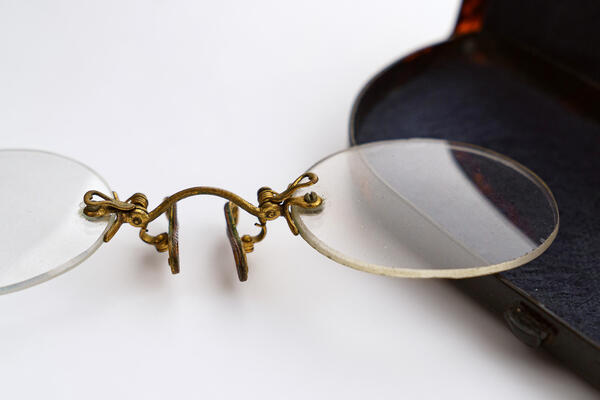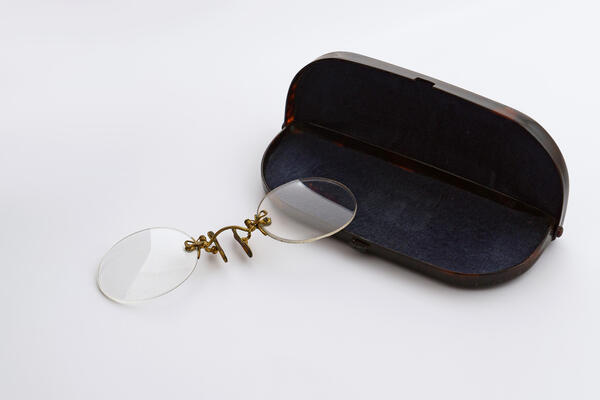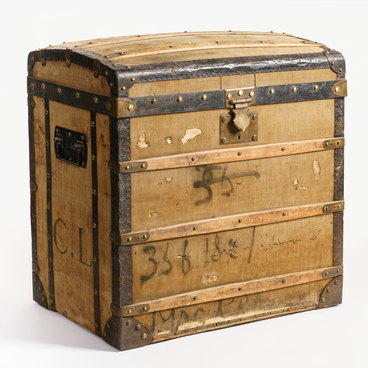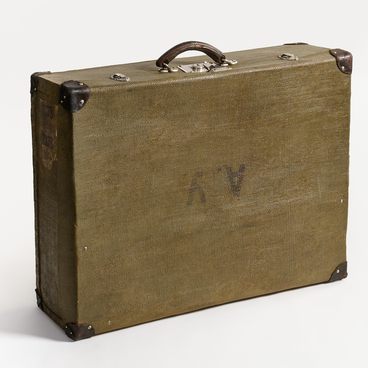Pince-nez and monocles were part of Bulgakov’s style in his youth: this pince-nez from his apartment in Nashchokinsky lane has diopter-free lenses. Pince-nez was also worn by Bulgakov’s characters, most notably Koroviev from The Master and Margarita; the cracked pince-nez and plaid suit are important components of his image,
Mikhail Bulgakov’s pince-nez
At the deceased’s desk sat an unknown, skinny, long citizen in a little checkered jacket, a
Jockey’s cap, and a pince-nez… well, in short,
that same one.
There are no photos of Mikhail Bulgakov wearing this pince-nez, but it is known that the writer’s eyesight was severely weakened following his kidney disease of nephrosclerosis in 1939. This was preceded by a series of events that resulted in a severe shock and illness for the writer. Back in 1936, Mikhail Bulgakov conceived a play about Stalin, but only started it in 1939. The play entitled “Batum” was intended for the Moscow Art Academic Theater and was to narrate the story of young Stalin.
Then Misha said, ‘And now for the play.’ And he began to speak. He spoke well, fascinatingly (as Vilenkin, who had called to ask our impression, told me on the phone). After the story was over, both Kalishian and Vilenkin said that it would be a very big thing, they discussed the main role — that it was really the character of the play, a real role, not like in others — they scolded modern playwriting in passing — in general, in my opinion, they were very excited.
Soon Bulgakov signed a contract with the theater for the play “Batum”. In August, Mikhail Bulgakov with his wife and actors of the Art Theater traveled to Tbilisi to study the location of the events developing in the play. When Bulgakov stopped in Serpukhov, he received a telegram in the carriage,
The trip is no longer necessary, return to Moscow.
Returning back by taxi, Mikhail Bulgakov covered his face with a hand to block the sun and asked his wife,
What are we rushing towards? Maybe death?
The play received a negative review of the Central Committee; it was forbidden to be staged and published. That is when the disease began to develop rapidly, from which the writer never recovered. Bulgakov died on March 10, 1940.




